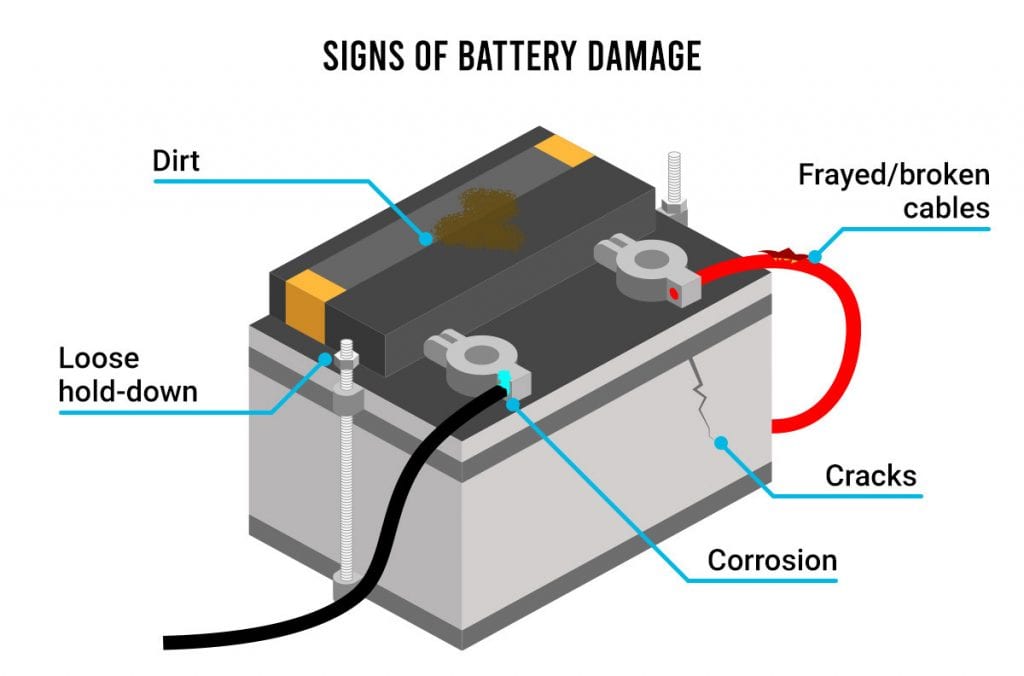Taking Care of Your Car Battery in Winter
Car batteries are finicky things. One day, you’re happily driving down the road, and the next, you’re stuck on the side of the highway with a dead battery. Thankfully, these days many cars have devices that let you know if there’s trouble with your battery.
But what if you have an older vehicle, or these devices fail? Here are some tips about why winter’s such a hot time for car battery failure.
Car Batteries Are Weak in the Winter
The University of Michigan interviewed several of their Mechanical Engineering professors to explain why batteries are notoriously faulty in the winter. Professor Anna Stefanopoulou shared that, “Batteries are weak when they are cold. They are like humans.”
This is true for all types of batteries, even car batteries, they simply are not functioning to their optimal potential in the winter months due to the cold.
Vehicle Engines Are Slow in the Cold
Second, Professor Andre Boehman explains that many of the common problems people have with their vehicle’s engines are connected to how the battery functions in the winter months. Not only does the cold weaken the battery, but it also causes sluggishness in the engine because, “the coolant takes longer to heat up, which can mean that it takes longer for your vehicle’s heater to start warming your car.”
According to Professor Margaret Wooldridge, diesel and gas vehicles use something called, “waste heat” to power the vehicle’s battery. So, if the engine is taking longer to heat up, this means your battery is not getting the charge it needs to continue powering the vehicle.
Summer Heat Preps Your Battery to Fail in Winter

While the weakened battery and the thickened engine coolant contribute to the issue at hand, the real enemy of your car battery in winter is summer. Consumer Reports points out that summer is harder on your battery than winter. This is because heat quickens things like corrosion of the internal plates and causes the battery to slightly expand, which can create cracks or loosen the holding plates.
This might sound dire for summer driving, but actually, it’s not much of an issue until the battery becomes more taxed during the winter. The thickened fluids and reduced cranking power make it more difficult for the engine to turn over and give the battery the jolt it needs if it’s been weakened. This makes the battery more susceptible to failure.
How Can You Prevent a Dead Car Battery?
A cold highway is the worst place to have a dead battery. So what can you do to prevent this from happening? Sometimes dead batteries are unavoidable or out of your control. However, there are a few measures you can take to lessen the chances that you’ll end up with a dead battery.
1. Check Your Battery Before Winter
The main thing you can do to prevent dead batteries is having your battery checked and tested at the end of summer, or at least before cold weather hits. In one of our recent blog posts, we shared some tips on what to look for when checking your battery.
You can find those tips in our article: 10 Tips for Getting Your Car Winter-Ready!
2. Monitor Your Battery with DroneMobile
Did you know all 2-way Compustar systems now include a Drone X1 module? When you activate Battery Monitoring Alerts, DroneMobile will monitor your battery’s voltage and send you a push notification or a text message if your vehicle’s battery dips below 11.7 volts.
3. Remote Start Your Engine
While remote starting won’t recharge your battery, it will help with some of the other issues that lead to battery failure. Remote starting and letting your engine idle for just a few minutes will warm up the fluids that may have thickened in the cold.
If you’re interested in improving your winter driving experience, then you should check out our remote starters. A remote starter allows you to warm up your vehicle before you even step outside. To learn more, use our Find a Dealer page to talk with one of our experts today!




